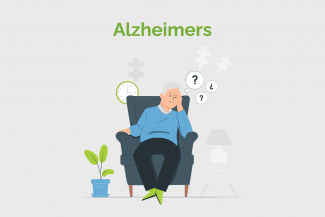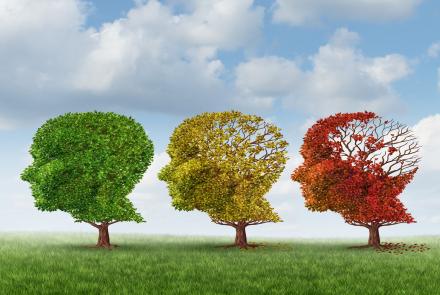
What is Alzheimer's disease?
Alzheimer's disease is a neurological disorder (disorder of the nervous system) in which the death of brain cells causes memory loss and cognitive decline. The disease starts mild and gets progressively worse.
Mostly, it’s the neurons (nerve cells) that are destroyed in Alzheimer’s disease. Our thoughts and memories move through nerve cells as electrical charge. Alzheimer’s disease disrupts electrical charges within the cell and also the activity of neurotransmitters that carry messages from one cell to another. Plaques also build up between nerve cells.
Alzheimer’s usually affects people over the age of 65. Over time, the patient may forget how to dress themselves, feed themselves, and use the toilet. They may not recognize their loved ones.
A person can live with Alzheimer's disease for just a few years or for a few decades. More often, however, people live with it for about 9 years. About 1 in 8 people aged 65 and over has the disease. Women are more likely to have it than men.
To understand how to disease progresses, please read here
Signs and Symptoms: http://www.patientsengage.com/conditions/alzheimers/signs-symptoms
How can you manage the condition http://www.patientsengage.com/conditions/alzheimers/management
Treatment options : http://www.patientsengage.com/conditions/alzheimers/treatments
















